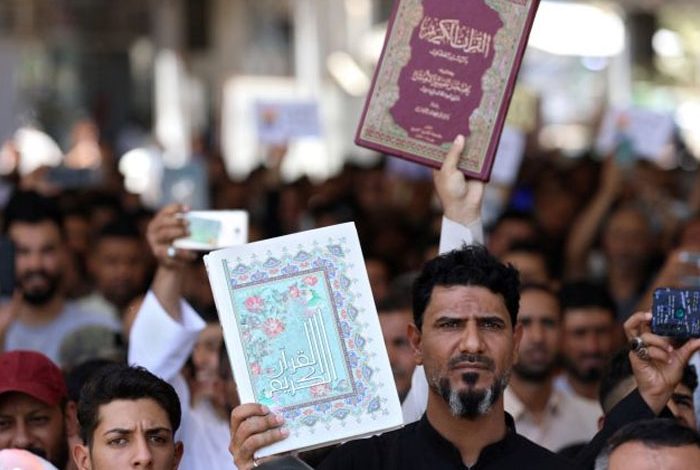Will Sweden Change Its Laws to Ban Quran Burning?

While current laws, policies, and social traditions in Sweden indicate that such incidents are unlikely to stop anytime soon, experts and politicians pointed out on Friday that there is limited political will in Sweden to ban Quran burning, which has provoked widespread outrage around the world, and even if support for such a move were to exist, it would face obstacles and complications.
This comes after supporters of Shiite cleric Muqtada al-Sadr stormed the Swedish embassy in Baghdad and set it on fire in the early hours of Thursday, in anticipation of a similar incident of Quran burning in front of the Iraqi embassy in Stockholm, the latest of such incidents in Sweden in recent years.
Later, Iraq withdrew the chargé d’affaires in Stockholm, and Sweden stated that it temporarily relocated embassy staff from Baghdad to Sweden for safety reasons, according to Reuters.
Swedish courts have ruled that the police cannot intervene in Quran burning. While the last two incidents of Quran burning are being tested in court as incitement to hatred, it is widely believed that this act is protected by Sweden’s broad freedom of expression laws in the constitution.
According to Reuters, amending the constitution is a lengthy process that requires a vote in parliament, followed by a referendum, and then another vote in parliament.
However, Swedish Prime Minister Stefan Löfven’s government said last week that it might consider the possibility of amending the public order law to enable the police to intervene in Quran burning, amid concerns about national security.
The issue of Quran burning could jeopardize Sweden’s accession to NATO. Turkish President Recep Tayyip Erdoğan warned earlier that Sweden would not be accepted into the military alliance if Quran burning incidents continue to occur there.
The Organization of Islamic Cooperation, consisting of 57 countries, presented a resolution approved by the United Nations Human Rights Council on July 12th, calling on countries to review their laws preventing legal action against “religious hatred.”
Ebba Busch, the Deputy Prime Minister of Sweden, and a member of the Christian Democrats party, stated earlier this month: “Sweden alone decides its legislation, and will not be affected by the beliefs of other countries or their laws.”
In a tweet on July 7th, after a Quran was burned in front of a mosque in Stockholm, she wrote: “Sweden does not bow to Islamists. Burning sacred books is reprehensible, but it is not against the law.”
Reuters also believes that it is unlikely that any potential amendment criminalizing such acts will be approved, as the minority government relies on the support of the Swedish Democrats, the second-largest party in parliament after the last year’s elections, which is anti-immigration and criticizes Islam.
A survey conducted by Gallup in 2022 revealed that the highest percentage of citizens who declared themselves non-believers in God was in Sweden. Sweden abolished laws that punished criticism or mockery of religion and the royal family in the 1970s.












